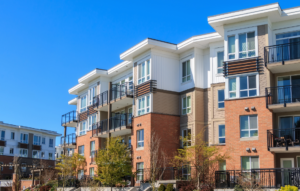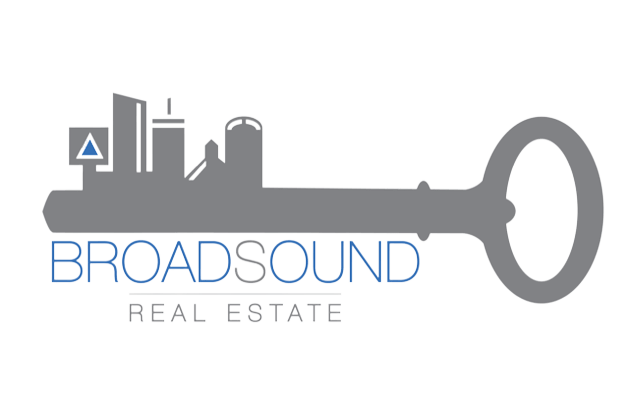Making the biggest purchase of your life is bound to mean making mistakes.
A home is one of the most important purchases a person will make in their lifetime. However, like everything, it presents some challenges that, with the proper preparation, are easy to avoid.
Despite extensive research, there are many first-time home buyer mistakes to avoid. Some people may be too eager to start looking for a home and don’t consider all the implications.
Fortunately, you came to the right place. We prepared a list to make this process easier for you.
Homeownership is a unique experience, and we want to help you make it memorable.
Whether you are new to the process or haven’t done it in years, it’s essential to understand what goes into this major life decision.
Along with knowing where the potential pitfalls lie, you will learn about what you could expect and how to know when you’ve found your match.
1. House hunting before a mortgage application
A very common one amongst first-time home buyer mistakes!
Longtime homeowners are often familiar with the saying about home-buying: “The bank owns the place before you do.”
They recognize that most sellers don’t want to risk accepting an offer from a buyer who hasn’t secured financing. Selling a house is not like buying a car on credit card points.
Many first-time home buyers start looking for homes without speaking to a mortgage lender: this is a mistake!
The housing market is hyper-competitive, so you have to arrange all your financing in advance, or you’ll lose out to other buyers who can make a firm offer because they’ve already budgeted for the cost of their new home.
If rates climb before you put an offer on a house, you could wind up paying more than expected — especially if your mortgage rate is higher than average when you go to close the sale.
The best advice we can give is: Get pre-approved as early as possible so you know exactly how much house you can afford before visiting open houses and looking at homes in neighborhoods with some availability and competition with other buyers.
[Related Article: How to Increase the Mortgage Pre-Approval Amount?]
What you should do:
Don’t get caught up in the love of a house that isn’t a good fit for financing. Talk to a real estate agent and mortgage broker about getting pre-approved before moving forward with your house hunt. It will help ensure you’re not wasting time on a property you can’t afford and focus on the right one for your finances.
2. Relying solely on one lender
One of the biggest first-time home buyer mistakes you can make when buying your first home is not taking the time to compare several different lenders’ quotes.
If you’re looking for a home, think twice before simply going with the first lender or bank someone offers you. More so if it’s your first time buying a property.
Make sure you are getting a great deal and the best mortgage rates by comparing multiple lending institutions and their benefits packages, interest rates, and fees.
What you should do:
Get quotes from at least three different banks and, if possible, one mortgage broker.
Banks specializing exclusively in home loans are the best choice because they can often offer you more money than a regular bank.
Try to get rate quotes all on the same day since rates change constantly.
Compare interest rates, lender fees, and loan terms.
You’ll want to find a loan with low-interest rates and affordable lender fees. For example, some loans have higher interest rates but lower lender fees, making them a better deal than comparable loan options with lower interest rates but higher fees.
Also, you want to consider customer service and lender responsiveness when looking for a lender because both can make your home buying process run more smoothly.
A real estate agent can help you find the best lender and explain the types of loans that exist and to which ones you could qualify based on your specific conditions.
3. Overspending on a house
There are many attractive features about homes, and it may be hard to compromise on some of those traits when searching for your ideal home.
It is important to remember that the house is only a foundation for a future together, not the ultimate goal.
Also, we all know real estate prices are expected to increase over time, so it’s imperative to get a good grasp on your budget not to overspend and save more for other investments.
What you should do:
Take a look at what monthly payments you can expect to pay after purchasing a house. Consider your current expenses (car, insurance, groceries, etc.) plus the mortgage payments against what you have available to spend monthly.
When determining how much you can afford on your next home, it is wise to consider all aspects of your finances.
Additionally, tell your broker or lender precisely what you need during this process. Since they’ll be providing the loan, they need to know the risk associated with giving out their investment.
The real estate agent can approximate the amount of money the bank can lend you, how much your monthly payment will be, how much your return will be, or your total expense if you decide to buy a multi-family house and rent the other units.
[Related Article: How Much Money Do You Need to Buy a House?]
4. Rushing the process
Buying a home can be complicated, particularly when you get into all the paperwork.
Rushing this process can cost you down the line, so it’s important to be patient and plan well for your future.
Patience is key here. Save yourself some money down the road by carefully making all the decisions regarding this important purchase.
Pay attention to every detail.
What you should do:
Create a timeline that details when you will buy your home at least a year before the purchase.
Keep in mind it takes about a year of working on repairing credit and saving up enough money to make a sizable down payment to become qualified for what is known as a pre-approval.
Make sure to start working on boosting your credit score and paying off any debts that can have an adverse effect, such as bank loans, etc.
5. Using up your savings
Don’t exhaust your finances on down payment and closing costs!
Hint: Not all closing costs have to be paid by the buyer. Sometimes, the seller takes care of some of these costs, and the real estate agent can help determine what closing costs the buyer should pay according to their specific situation.
It might seem like paying 20% of the total purchase price up-front will help you avoid having to pay additionally on your mortgage payments monthly.
However, you may be risking your savings for any unexpected events.
What you should do:
It’s essential to have a financial safety net.
Consider not depleting savings or retirement accounts that might be used in case of emergency (like extended unemployment, illness or disability, etc.).
Emptying them when buying your home is risky!
Instead, find other ways than tapping into these funds to pay a hefty down payment. For example, you can do temporary side gigs to make additional cash.
Decisions must be made based on numbers, and if a risk is going to be taken, it is because the profit is worth taking that risk.
6. Assuming you have good credit
Before applying for a mortgage, a mortgage lender will examine your credit report to determine if you are a good candidate for the loan.
Sometimes, the lender will pull your credit score again before the final approval or even at loan closing just to ensure everything is going smoothly.
This is because new financial information can come up and change your eligibility for financing in some way.
What you should do:
Keep your finances in check throughout the buying process.
Don’t open new credit cards, close existing accounts, take out new loans, or make large purchases on existing credit accounts until you have a ratified contract and have moved into your new home.
Pay down your existing balances to below 30 percent of your available credit limit and pay all costs associated with buying a home on time, in full on top of that, and look into mortgage payment plans if needed.
7. Overlooking the neighborhood
Choosing a home that meets all your criteria is important, but so is its location and neighborhood!
Picking an area that interests you can add to your life and family’s quality of living.
Suppose it’s not the right fit for you. In that case, you’ll know relatively quickly when moving in – so don’t dwell on whether or not you like how the floors look or which appliances came with the purchase.
Instead, pay attention to how potential neighbors interact on a day-to-day basis.
What you should do:
Decide what is most important to you in a community, and do your homework.
Consider factors such as school ratings, commute time, and other factors based on your needs and preferences.
You could visit the neighborhood at different times to determine whether this would be a neighborhood you’d be interested in living.
8. Getting carried away by emotions
Buying a house is undoubtedly very exciting since it is many of us dream. The emotional part is huge between all the first-time home buyer mistakes.
After finding the right home and making an offer, you might get into a bidding war with other buyers.
Sometimes, buyers that make more money will pay more for a property than first-time home buyers because they have more money to invest.
Plan by having an emergency fund of at least 6 months of your living expenses. So, if something unexpected happens, you still have enough to cover all costs without having to back down from your purchase.
Real estate markets come and go, so you should always have contingencies when buying a property – make sure you understand what your payments would look like over time before signing any contracts!
What you should do:
Try to keep an emotional distance from your house. Budgeting is essential to making a home purchase work. Emotionally investing too heavily in a housing initiative may leave you with a limited future.
9. Miscalculating homeownership expenses
As the homeowner, you will be responsible for several yearly expenses to keep your property up-to-date and in good repair.
Sometimes these things can add up quickly, so it’s best to devise a well-formed plan that accounts for everything.
Right away, you’ll want to account for homeowners insurance premiums, property taxes, and loan (home equity) payments on your monthly budget because someone has to pay.
In most cases, the most significant expense when taking out a home mortgage loan is the down payment.
But many people don’t realize that they must pay for private mortgage insurance (PMI) to ensure their lender accounts for all homeownership risks, including job loss and foreclosure!
Private mortgage insurance with an annual premium is between 0.5% and 1.5% of your loan balance, $83 to $250 per month on a $200,000 loan.
What you should do:
To help you budget, think beyond the monthly mortgage payment and include taxes, homeowner’s insurance, utility bills, and repairs.
Shop around to get better deals on insurance coverage.
Finally, aim to set aside at least 1-3% of the home’s purchase price each year for maintenance costs.
Lastly,
With all the considerations of buying a home, it can be hard to know where to begin. Now that you understand the common first-time home buyer mistakes, you’re ready to begin looking for your first home and taking the first steps towards homeownership!
If you’re ready to start, contact a real estate agent today by clicking here or call us anytime at (617)729-2967.















![eBook How to Increase Home Value [7 Simple Ways]](https://realestatejuanc.com/wp-content/uploads/2022/03/FORMAS-WAYS-TO-INCREASE-YOUR-HOME-VALUE.png)